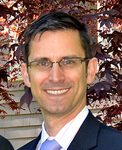Kleinberg’s Essay the Featured Reading Material for Modern Intellectual History Webinar

An essay by Ethan Kleinberg, professor of history, professor of letters, is the featured reading material for the H-France network’s fall 2015 webinar on “Modern Intellectual History.” H-France’s mission is to promote scholarly work and discussion on the history and culture of the Francophone world through digital form.
Kleinberg also is director of the Center for the Humanities and executive editor of History and Theory.
The H-France webinar will take place at 3 p.m. Sept. 18. Designed particularly for graduate students, H-France webinars are open to anyone. Participants are expected to read Kleinberg’s essay prior to the seminar and consider related questions.
The article, “Back to Where We’ve Never Been: Heiddegger, Levinas, and Derrida on Tradition and History,” was published in History and Theory 51:4 in December 2012.
Webinar participants will question how Kleinberg’s essay invite them to:
1. Understand the relation between intellectual history and critical theory (producing knowledge about history/history of ideas vs. thinking historically in order to produce a critique of existing arrangements, whether intellectual, social, or political)? Or intellectual history as a subfield of history (focused on ideas and society) vs. intellectual history as a more fundamental inquiry into history and historiography?
2. Consider the difference between understanding a thinker’s analytic/philosophical framework historically, on the one hand, and actually employing that framework to understand or write history, on the other? Should/must intellectual historians allow the theories they study to inform the kind of history they write? What happens when conventional methodology is used to understand heterodox thought?
3. Reflect on the temporal concepts, assumptions, and frameworks normally employed by intellectual historians? On different ways historians can or should relate past to present? On intellectual history’s possible role in provoking history to focus on time itself as an object of study and social force?

